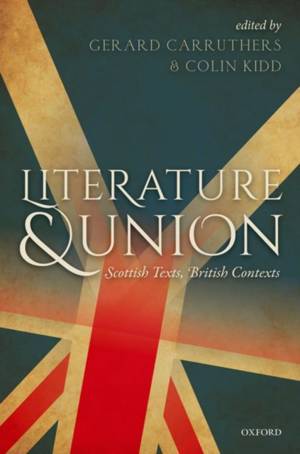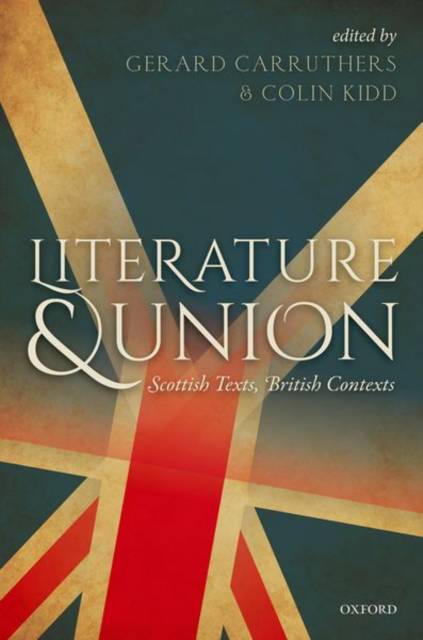
- Afhalen na 1 uur in een winkel met voorraad
- Gratis thuislevering in België vanaf € 30
- Ruim aanbod met 7 miljoen producten
- Afhalen na 1 uur in een winkel met voorraad
- Gratis thuislevering in België vanaf € 30
- Ruim aanbod met 7 miljoen producten
Zoeken
€ 99,95
+ 199 punten
Omschrijving
Literature and Union opens up a new front in interdisciplinary literary studies. There has been a great deal of academic work--both in the Scottish context and more broadly--on the relationship between literature and nationhood, yet almost none on the relationship between literature and unions. This volume introduces the insights of the new British history into mainstream Scottish literary scholarship. The contributors, who are from all shades of the political spectrum, will interrogate from various angles the assumption of a binary opposition between organic Scottish values and those supposedly imposed by an overbearing imperial England. Viewing Scottish literature as a clash between Scottish and English identities loses sight of the internal Scottish political and religious divisions, which, far more than issues of nationhood and union, were the primary sources of conflict in Scottish culture for most of the period of Union, until at least the early twentieth century.
The aim of the volume is to reconstruct the story of Scottish literature along lines which are more historically persuasive than those of the prevailing grand narratives in the field. The chapters fall into three groups: (1) those which highlight canonical moments in Scottish literary Unionism--John Bull, 'Rule, Britannia', Humphry Clinker, Ivanhoe and England, their England; (2) those which investigate key themes and problems, including the Unions of 1603 and 1707, Scottish Augustanism, the Burns Cult, Whig-Presbyterian and sentimental Jacobite literatures; and (3) comparative pieces on European and Anglo-Irish phenomena.
The aim of the volume is to reconstruct the story of Scottish literature along lines which are more historically persuasive than those of the prevailing grand narratives in the field. The chapters fall into three groups: (1) those which highlight canonical moments in Scottish literary Unionism--John Bull, 'Rule, Britannia', Humphry Clinker, Ivanhoe and England, their England; (2) those which investigate key themes and problems, including the Unions of 1603 and 1707, Scottish Augustanism, the Burns Cult, Whig-Presbyterian and sentimental Jacobite literatures; and (3) comparative pieces on European and Anglo-Irish phenomena.
Specificaties
Betrokkenen
- Auteur(s):
- Uitgeverij:
Inhoud
- Aantal bladzijden:
- 444
- Taal:
- Engels
Eigenschappen
- Productcode (EAN):
- 9780198736233
- Verschijningsdatum:
- 15/03/2018
- Uitvoering:
- Hardcover
- Formaat:
- Genaaid
- Afmetingen:
- 155 mm x 236 mm
- Gewicht:
- 861 g

Alleen bij Standaard Boekhandel
+ 199 punten op je klantenkaart van Standaard Boekhandel
Beoordelingen
We publiceren alleen reviews die voldoen aan de voorwaarden voor reviews. Bekijk onze voorwaarden voor reviews.











